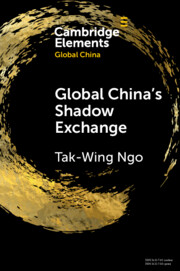Refine search
Actions for selected content:
1 results

Global China's Shadow Exchange
-
- Published online:
- 05 January 2024
- Print publication:
- 01 February 2024
-
- Element
- Export citation
